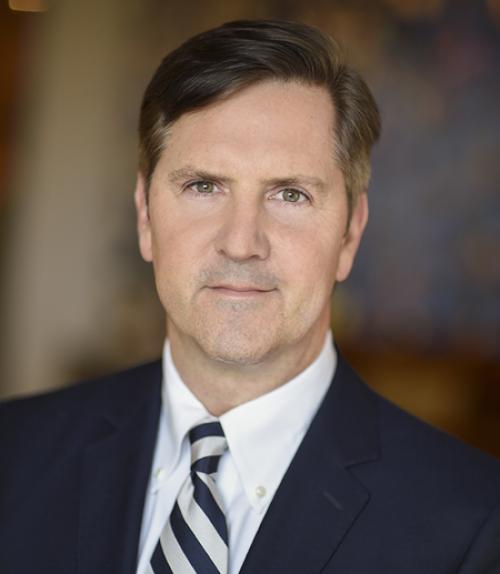Mike Clifford’s mom might be the only Ivy League parent who encouraged her son to pursue poetry rather than a job in finance.
“In the fall semester of my senior year, I got an offer, along with the MBA students, for a full-time job with J.P. Morgan,” said Clifford ’87, who majored in English and minored in economics. “My mom said to me, ‘But I thought you were going to be a poet?’”
Clifford thrived for a few years in the finance world, especially when he got to work on the marketing aspects of a deal, which made him realize he was a marketer at heart. He founded his own company, which he sold in 2008. Currently, Clifford is enjoying a new career supporting young companies and entrepreneurs.
“When I came to Cornell, I was agnostic about what I wanted to study, so I was looking for a broad liberal arts education and the opportunity to go deep into any category,” Clifford said. “I was interested in trying different things, so I took electives in almost every school, but my passion ended up being English.”
During his junior year, he felt challenged to see if he could get a job on Wall Street. “I applied for a summer internship at J.P. Morgan and it was fun to get that offer and try that on as a career path,” he said.
His job introduced him to many departments, from real estate to hotel finance, and led him to a position at marketing giant J. Walter Thompson, where he rose through the ranks to handle large clients.
“Along the way, I began to trust my own skill set and listened to myself more and more, realizing I was really an entrepreneur at heart,” he said. “When I started my own company, I was starting from scratch, but I had a pretty good network of contacts who started referring business to me.”
Clifford said his Cornell education taught him to question the status quo and be open to new ideas.
“I had the opportunity to talk and learn from a diverse set of people at Cornell,” he said. “When you walk into a business situation where you have extremely opposite views, you have to be able to find the middle ground.”
Clifford Public Relations took off quickly, although it started pretty home-grown, with his mom – the poetry lover – signing on as his bookkeeper.
“My M.O. with Clifford PR was to [be] ‘the anti-PR firm,’” he said. “For me, that meant we would hire the smartest people possible, train them to do the basic stuff and then get out of the way.”
As he was hiring, he looked for people with passions in areas he wanted to focus on: food and beverage, design, luxury brands, consumer products, technology. “People stay when they get to work on things they love,” he said.
The company won Nike’s national business, as well as major contracts with Land Rover/Jaguar, Starbucks, Old Navy and Crate & Barrel.
“We had street teams and other nontraditional forms of marketing,” he said. “We did social stuff before social media was all online, a lot of word-of-mouth marketing, and found influencers who would become spokespeople for our products.”
For one Nike campaign, the company hosted underground dance parties and offered new shoe styles for people to try. When Crate & Barrel wanted to focus on the friendliness of its staff, Clifford’s company helped the company set up “auditions” for its newest workers.
“We got a feature story in the New York Times about Crate & Barrel bringing a nice Midwestern vibe to Manhattan,” he said.
“Marketing is the perfect mix of creativity and metrics,” Clifford said. “You are looking [at] measurability and accountability and you’re always learning from things that didn’t work.”
After the sale of his company, Clifford stayed on for a few years and then transitioned into his present work as an early-stage and angel investor, which allows him more time to spend with his partner and twins.
He said his experience has shown him that “it was high-level consulting that really moved the dial in some cases. What a lot of major brands and small startups miss is they don’t know how to stand out in the marketplace and which advisers can make a difference in their success.”
Right now, Clifford is working with a design company in Marrakesh, Morocco, an app-based educational company on the West Coast and a biotech company from Boston that has a cancer drug in human trials. Along with advice, he often connects companies to investors, partners or stakeholders. Some of his referrals come from former clients or employees, and others from Cornell classmates.
“I love to hear people’s pitches and think about how this will help the world,” he said. “There’s a sense of really making a difference, of using my powers for good.
“I realize now at the end of the day the best careers are circuitous. If you’re open to new opportunities, you will find yourself in the right place.”
This story also appeared in the Cornell Chronicle.




